A great atmosphere and awesome dentist, Dr. Hart is great with kids and the staff is the friendliest. I highly recommend Dr. Hart
Pain Management
Overview
In the body, wherever there are nerves, there is the possibility of pain whether in your teeth, tongue, gums or jaw. The most common cause of dental pain are cavities, places where the tooth has begun to decay, which in turn can cause infection. Sore jaws, impacted or abscessed teeth, and improper bite relationships can also be painful.
Managing Pain
A few examples of natural ways to diminish dental pain are:
- Ice pack on the area in question
- Avoid eating hard, brittle foods, such as candy or ice
- Try to only sleep on your side or back, not stomach
- Salt water rinse
A few examples of pain management that dental professionals use are:
- Anesthetics (Novocaine)
- Analgesics (Aspirin or Ibuprofen)
- Sedatives (both conscious and general or deep sedation
Anesthesia
In the past people used to be nervous and anxious about going to the dentist. Many times, people avoided the experience all together, worried about how much it was going to hurt. But recent advances in the field has made pain virtually non-existent when getting dental work done.
Dentists now have a variety of pain medications available which include:
- Analgesics – These are drugs to help to relieve pain, usually used for mild cases of discomfort. There are two common types of analgesics, the first being NSAIDs (Nonsteroidal Anti-inflammatory Drugs) and the other being opioids. During common dental procedures, generally the only types of analgesic that would be recommended are NSAIDs such as ibuprofen and aspirin.
- Anesthetics – These are substances that help to desensitize or numb a particular area of the body so that pain is not felt through either injection, ingestion, or topical application. When dentists are preparing an area of the mouth for a restoration or before administering an injectable anesthetic such as Novocaine or Lidocaine, they will generally use a topical anesthetic, for its numbing effect. Injectable anesthetics stop the nerves from sending signals by blocking them.
- Sedatives – These are substances that are made to keep a patient calm and relaxed. One popular example of a common sedative used in the dental field is nitrous oxide, also known as laughing gas. Administering this sedative calms the patient down and insures that they are not wiggling and moving around while we are working inside of their mouth on their teeth. Another popular type of sedation that is only used when undergoing complicated dental procedures or surgeries is general anesthesia, which puts a patient to sleep and in a state of controlled unconsciousness.
Air Abrasion
With today’s advances in dental technology, dental drills, which are notorious for being painful, don’t need to be used for all procedures any more. Smaller issues such as tooth decay, bonding, small cracks, and tooth imperfections all can be fixed through a painless process called air abrasion. This cutting edge technique blows a tiny, powerful stream of air which contains tiny aluminum oxide particles which help to remove decay and debris from the tooth.
Medications
In many ways there is crossover between your overall general health, including medicines you take, and your dental health. There are a few different kinds of medications out there that can negatively affect your teeth. This is why it is so important to ask your medical provider what the side effects are of the medicines they are prescribing you. You should be sure that you are comfortable with what you are taking.
There are certain medical conditions where dry mouth is a common side effect, for example people who have eating disorders, rheumatoid arthritis or diabetes and people undergoing cancer treatments, taking certain medications, or who have a compromised immune system. Other common reasons could include tobacco use and eating certain foods. If your dry mouth is not caused by a medical condition, there are a few things that you can try such as chewing sugarless gum, sipping water, and you should avoid using tobacco products.
What Our Patients Say

First time here and will definitely make this my go to dentist office!!! The staff was so friendly, knowledgeable, and accommodating. Oh, and the waiting area was out of this world.
Richard E

They didn't make me feel bad about having such bad teeth, and made me feel really good about myself. Cared about me not just as a patient. Would recommend to everyone!
Kathy D

Dr. Hart is amazing! I was able to be worked into get my chipped tooth fixed. The techs that I met with were also all amazing and very helpful!
Sydney S

Dr. Hart and his employees are wonderful. His demeanor and family oriented attitude is what keeps me coming back, not to mention his top notch skills. I always leave Dr. Hart's office with a smile, a very healthy smile :)
Quintin B

I'm very happy with the thorough care I received for my 6 month check-up and cleaning. Both Dr. Hart and Susie, the hygienist I always see, were kind to answer all my questions.
Virginia W

Felt cared about. Dr. Hart took his time in explaining my tooth situation, which made me feel confident he knew what he was doing, and that he cared about me as a person.
Mary Lou G

It was a great first visit. I hadn't been to the dentist in a while and they could definitely tell. But they didn't shame me for it like I have seen in the past. They seem friendly and want to make the visit as quick and painless as possible.
Shelby W
Book An Appointment
We look forward to seeing you soon!
Appointment Form
Thank you for contacting us.
We will get back to you as soon as possible
We will get back to you as soon as possible
Oops, there was an error sending your message.
Please try again later
Please try again later
Monday 8:00 a.m. – 5:00 p.m.
Tuesday 7:00 a.m. – 6:00 p.m.
Wednesday 7:00 a.m. – 6:00 p.m.
Thursday 7:00 a.m. – 6:00 p.m.
Friday 8:00 a.m. – 5:00 p.m.
We break for lunch Monday – Friday from 12:00 – 1:00 pm
Saturday By Special Appointment Only
© Copyright 2019 | All Rights Reserved | Hart Family Dentistry
Web Design & Digital Marketing With ♥ By Dotcom Design





